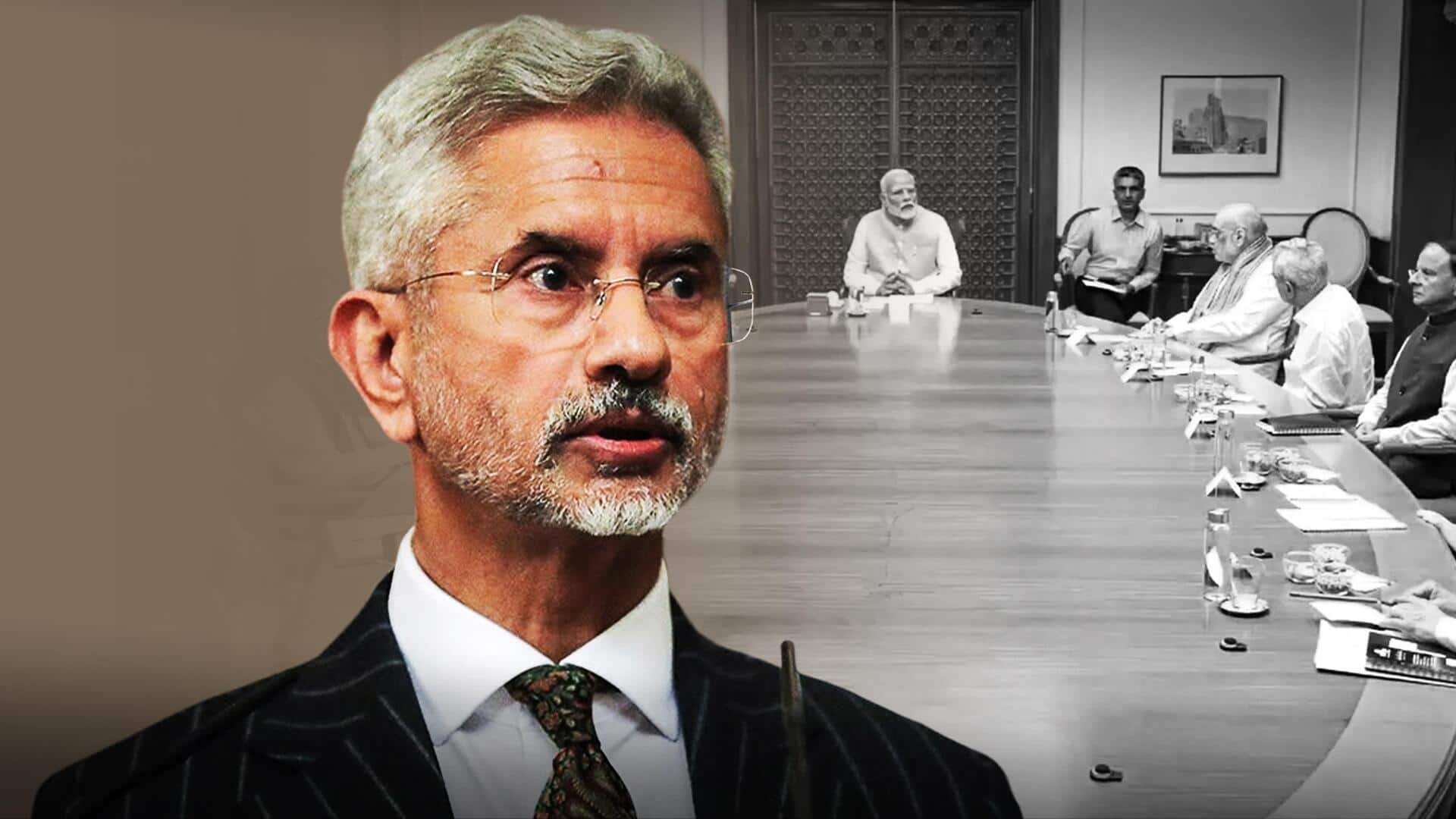
Centre calls all-party meeting amid Bangladesh turmoil, Jaishankar briefs MPs
What's the story
Foreign Minister S Jaishankar on Tuesday chaired an all-party meeting to discuss the collapse of Sheikh Hasina's government and the military takeover in Bangladesh amid violent protests.
Jaishankar briefed party leaders on the situation in the violence-stricken nation and outlined the measures taken by the Indian government.
According to reports, the foreign minister also discussed strategies to manage relations with the new regime in Bangladesh while supporting the ousted leader.
Context
Why does this story matter?
Hasina, the former Prime Minister of Bangladesh, fled the country after her resignation amid violent protests.
She arrived at Hindon Air Force base in Uttar Pradesh's Ghaziabad, 30km from Delhi, where she was received by National Security Advisor Ajit Doval.
Reports suggest that Hasina may seek political asylum in London.
Until the United Kingdom grants her request she is expected to stay in India.
Security concerns
PM Modi chairs security committee meeting
In addition to the all-party meeting, Prime Minister Narendra Modi chaired a meeting of the Cabinet Committee on Security (CCS) at his official residence.
The committee includes Defence Minister Rajnath Singh, Home Minister Amit Shah, Jaishankar and Finance Minister Nirmala Sitharaman.
Modi was also briefed separately on the situation in Bangladesh by Jaishankar.
Political unrest
Interim government formation in Bangladesh likely today
The Bangladeshi parliament is expected to be dissolved on Tuesday.
Amid widespread student protests, the military has taken control of the country.
On Monday night, President Mohammed Shahabuddin chaired a critical meeting to discuss establishing a military-backed caretaker government.
Attendees included Army Chief General Waker-Uz-Zaman, the heads of the navy and airforce, and top leaders from several opposition parties, including the Bangladesh Nationalist Party and Jamaat-e-Islami.
Background
Bangladesh political unrest
The student protest—ongoing since July—began with calls to abolish civil service job quotas but has since evolved into a broader anti-government movement.
The protests in Bangladesh are rooted in a contentious quota system that allocates up to 30% of government jobs to the relatives of veterans from Bangladesh's 1971 independence war.
Protesters argue that this system is discriminatory and favors former PM Hasina's Awami League party, calling for a merit-based system instead.